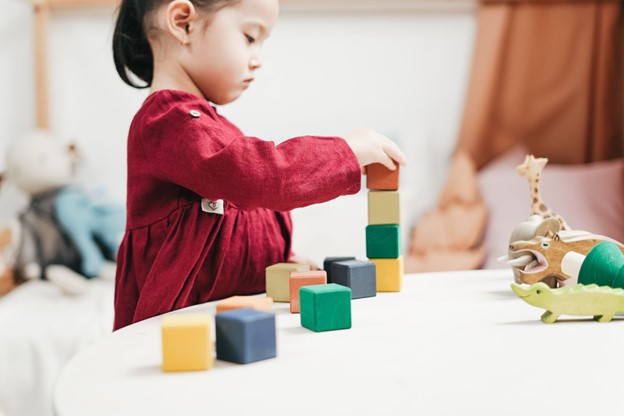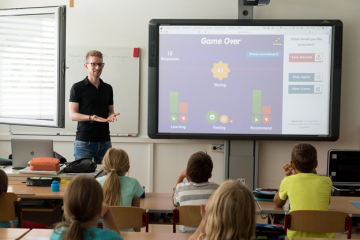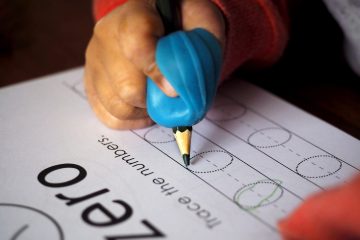Creating a lifelong love of learning in children often happens first in the comfort of your own home. You are your children’s first educator, an essential role to play in helping them develop academic skills needed to succeed in school and through their life. As a parent, you must allow your children to experience different activities at home to build a strong interest in learning.

One big part of developing your children’s academic skill set is to make sure they get enough practice at home. You may be wondering how exactly you do that! Below are some great ways to work on your child’s academic skills at home and help them reach their full potential.
Create a learning space
It is essential to create a space where your children can learn and reach their full potential. It could be a little corner of your living room or an entire room that is designated as a learning space for your kids. No matter what the size of the area you set aside, making it a place that works as an extension of the classroom helps your children feel more at home there, and they will be practicing skills they have already learned in school.
Read to your kids regularly
Reading is a skill that is often overlooked in the learning process. The more you read, the better you become at reading. Start by making it a regular habit to read to your kids and have them read out loud to you. Reading time can be before bed, during a snack break while doing homework, or even just on the weekends for fun! Be creative with it! Additionally, have them read different types of books or poetry. The more variety of books they read, the more they will develop their reading comprehension skills.
Work on math skills
Math is one of the most challenging subjects for children to grasp and understand. However, there are ways to help them learn better and faster. To start, play games that involve addition and subtraction. If they have a set of flashcards, let them flip through and practice recognizing numbers. If you are using flashcards with letters for sight words, also have them realize the numbers associated with the letter. Or, if you are making snacks or a meal, have them count out ingredients or count aloud while you or they are measuring. Soon they will be able to do these things instinctively. It will also help with their counting and number recognition!
Practice drawing skills
Children need to develop their observational and creative skills to succeed in school. One way to help them with this is by practicing drawing. If you have a coloring book or crayons, let your children color in the pictures. If you have paints, allow them to create an image with any color they choose. It will not only help with their creativity, but it will also help with fine motor skills.
Make time to play with your kids
Take an opportunity to be with your kids during playtime. For example, when you see your children on the floor playing with blocks, join them for a while. Your child may learn the pattern of how to build taller structures by watching you play. And through this their communications skills improve.
The way you express your thoughts and your emotions when playing with them influences your child. They will catch the concepts and interpret it on their own, which later they use in their interactions with peers.
Letting your child play games will help them improve their reading skills and vocabulary. If you already have board games, like Scrabble, that’s great! However, if you don’t have any board games or card games, you can create one very easily yourself. Just write down different words on pieces of paper and stick them randomly on the refrigerator with magnets. Then, when it’s time to play, they can find the words and make it more challenging.
Have your children help with chores
If you must spend time doing chores, why not involve your kids in helping? They will feel a sense of accomplishment and learn responsibility as you check your work together. Of course, it would be difficult for a younger child to do chores like washing dishes or vacuum the carpet. But they can fold clothes and other easy jobs. And as their skills develop, so will the things they are doing.
Working together can also create a bonding moment between you and your child. As they sense your love and encouragement, this is what they learn as approval from adults in their early years of life. Moreover, the repetitive nature of chores helps them improve focus and concentration skills.
Maximize the use of technology
Technology is a helpful tool to strengthen your child’s academic skills. Just be sure to use it responsibly to maximize its use.
There are many apps you can find online that help your child develop their speaking, reading, communicating, and math skills. You need to find and choose the apps suitable to their development level. Your children will enjoy playing the apps and learn at the same time. But be sure to remind your kids about the proper use of their gadgets to prevent possible harm, especially eye problems.
Incorporating fun activities with academic activities can help your child’s learning process. The key is to find a balance! Don’t make doing homework the only way your child learns. They will burn out and dread spending time at home. Instead, encourage them to enjoy the process of learning by playing, reading, drawing, and creating games at home. Additionally, having a learning space and encouraging your child’s confidence can help them succeed at school and become more confident in their abilities.
AUTHOR BIO: I’m Andrea Gibbs, born, raised, and still living in New York. I’m a work-at-home mom with a background in business development, strategy, and social media marketing. I’m a blog contributor at Baby Steps Daycare in Rego Park, New York to motivate and educate other parents about how they can get their children ahead of the game in school.


